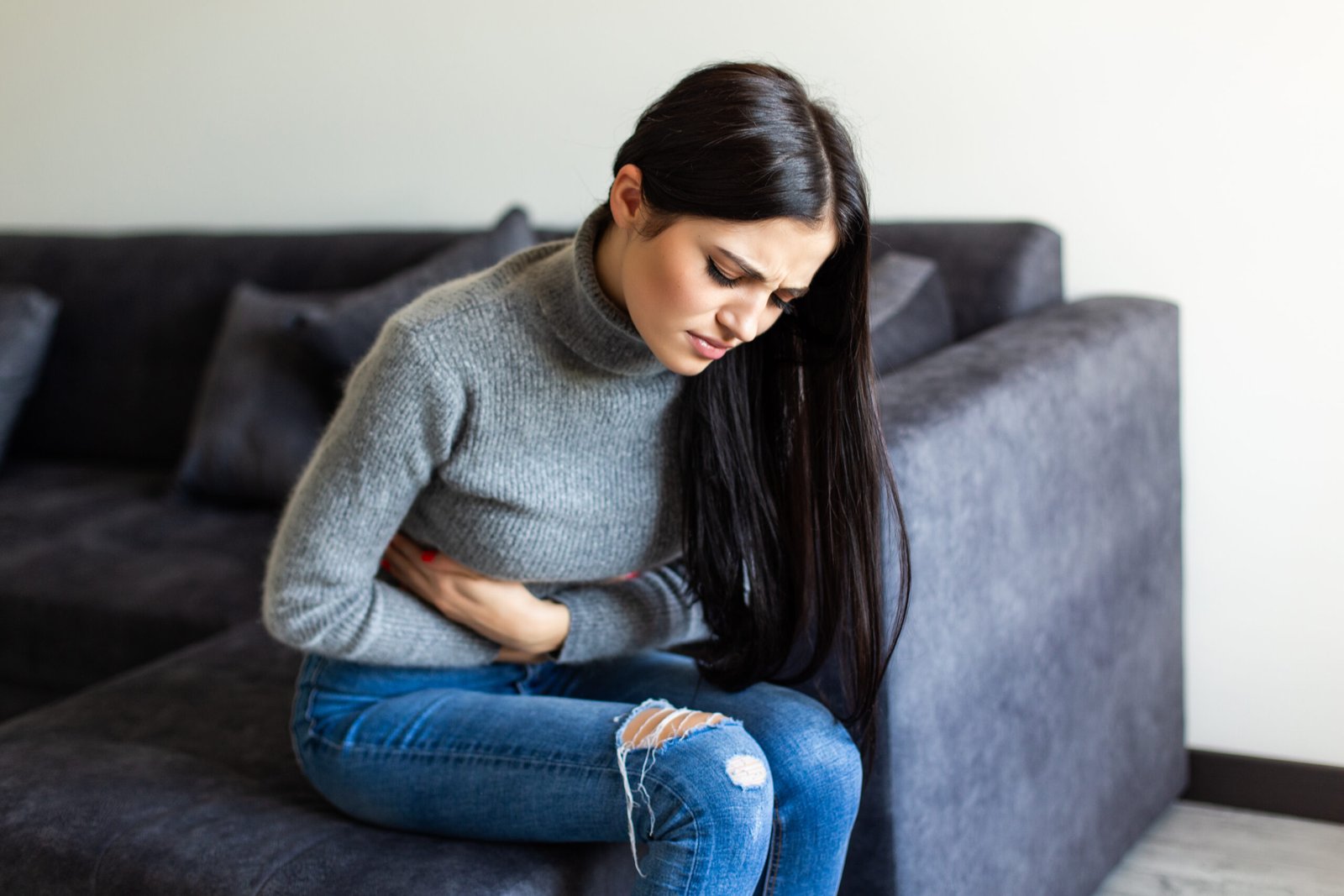Often benign, it generally causes the same symptoms: diarrhea, nausea, vomiting, etc. Be careful, gastroenteritis is an illness that can be dangerous for vulnerable people such as infants, young children, and the elderly, because they generally have a lower immune response.
Definition: What is gastroenteritis?
Gastroenteritis is an inflammation of the lining of the digestive tract. Most often, it is caused by a virus, rotavirus, although it can also be caused by bacteria (Salmonella, Campylobacter, etc.). It causes diarrhea and vomiting for 2 to 3 days in most patients and remains very unpleasant but harmless for most of us. It is also associated with headaches, body aches, fever, and fatigue.
However, be careful with the elderly and more fragile children! A consultation with a general practitioner is recommended as soon as possible. Gastroenteritis can cause severe dehydration in them in just one day of diarrhea. Each year, around 600 deaths are linked to intestinal infections, mainly at the extremes of age (under 5 and over 75).
Causes: What can trigger gastroenteritis?
In the case of gastroenteritis, a visit to your general practitioner is recommended to make the correct diagnosis. Indeed, the causes can be multiple, and the treatment varies depending on the causes. Gastroenteritis can be due to:
- A virus, rotaviruses or adenoviruses in particular, is the most common in children under 2 years old. We then speak of stomach flu;
- A bacterium, E. coli (Escherichia coli) or Salmonella, causes bacterial gastroenteritis is caused by poor hygiene, particularly during tourism. To stay healthy, in some countries, avoid tap water and eat cooked fruits and vegetables.
- A parasite, an amoeba, for example, was encountered during a trip.
What are the symptoms of gastroenteritis?
What are the first symptoms of gastroenteritis?
The incubation period for gastroenteritis lasts from 24 to 72 hours. The main symptoms of this illness are:
- Diarrhea, acute and sudden, which is characterized by high stool frequency (more than three stools in 24 hours) and a soft or liquid consistency;
- Of the nausea and/or vomiting;
- A moderate fever;
- Sometimes, blood in the stools may accompany these diarrheas.
Pain: Where does it hurt when you have gastroenteritis?
The pain of gastroenteritis is localized in the abdomen. More specifically, it can be abdominal cramps or pain in the stomach (epigastric region).
Is it possible to have gastroenteritis without vomiting?
The severity of symptoms varies, depending on the patient and the origin of the infection, whether viral, bacterial, or toxin-based.
Therefore, it is possible to have gastroenteritis without vomiting or with very little vomiting. Fever is also not systematic in cases of gastroenteritis. However, the absence of diarrhea is rare; this is the most common symptom of gastroenteritis.
Symptoms: How do you know if it’s gastroenteritis caused by a virus, bacteria, or parasite?
Viral gastroenteritis most commonly occurs during the winter months. It is often shorter-lasting than diarrhea caused by bacteria or parasites: less than 3 days versus one to two weeks. In cases of bacterial or parasitic infection, diarrhea is often more severe. Fever is also a possible symptom.
How long does the stomach flu last?
Often, symptoms of the disease, such as diarrhea, regress quickly, and health gradually returns. Stomach flu lasts between 1 and 3 days. In more severe cases, stomach flu can last up to 7 days or more. If diarrhea persists, care must be taken to maintain above-normal hydration to avoid water and vitamin loss.
The occurrence of symptoms also varies, depending on the pathogen responsible for the gastroenteritis:
- From 1 hour to 12 hours after infection with bacteria. Gastroenteritis is of bacterial origin;
- 12 to 24 hours after infection with a rotavirus or a virus from the norovirus family. Gastroenteritis is viral.
- 30 minutes after infection with toxins: Toxins are responsible for severe diarrhea, nausea, and vomiting.
If the stomach flu persists for more than two days or if in doubt, consult your general practitioner or other healthcare professional.
Transmission of gastroenteritis
Gastroenteritis is transmitted by:
- Of the direct contacts between a sick person and another person;
- Food or water contaminated by a sick person;
- Contact with soiled objects by fine particles of stool from sick people.
Gastroenteritis is a disease that is encouraged by community living and catering, and whose prevalence increases considerably in winter.
Treatment: How to treat gastroenteritis quickly?
There are several solutions to treat gastroenteritis and regain health.
Rehydration and hydration
Take oral rehydration solutions ( ORS ). In fact, during a gastroenteritis, the body undergoes a phenomenon of dehydration, which can be serious in the elderly, people with illnesses, immunocompromised people, or children. It is therefore necessary to compensate for water and salt losses. These solutions allow early rehydration (products are reimbursed by social security).
Drink plenty of water, often and in small quantities (soups, hot drinks, juices, etc.).
What to miss: what to eat in case of gastroenteritis?
Dietary hygiene measures are important: eat salty, sugar-rich, and residue-free foods such as pasta, rice, cooked carrots, and salty crackers. Raw fruits and vegetables, as well as iced drinks, should be avoided to avoid complicating digestion.
Antidiarrheal drugs and antibiotics
Reduce the intensity and duration of diarrhea (diet, intestinal transit slowers, intestinal absorbents/protectors, intestinal dressings such as Smecta, etc.);
Take antibiotics for bacterial gastroenteritis or antiparasitic treatment for gastroenteritis due to a parasite, prescribed by your general practitioner or a specialist healthcare professional. Please note that medication is not recommended for children with gastroenteritis.
How to quickly treat gastroenteritis?
Whether or not you are receiving treatment for gastroenteritis, it is essential to stay hydrated by drinking water regularly to avoid dehydration caused by diarrhea. Consult your general practitioner if symptoms persist for more than 48 hours, and if symptoms occur after returning from a trip to a developing country, as it could be food poisoning. You can also add a little more salt to your food than usual to avoid dehydration. Water is water in the body.
Note: Signs of dehydration in cases of gastroenteritis include darker and less frequent urine, dry skin and mouth, disorientation, and headache.
How to avoid gastroenteritis?
Hygiene measures
Gastroenteritis can be contracted by eating contaminated food, drinking contaminated water, and also through direct contact with sick people. So, to avoid getting infected, there’s no mystery! You must:
- Ensure hand and surface hygiene.
- Respect barrier gestures: wash your hands with soap as often and as thoroughly as possible.
- Do not share water glasses or cutlery at the table with other family members.
- Pay attention to meal preparation (especially in groups). Strict hygiene rules (hand washing, wearing disposable gloves) must be observed. People who are ill should not participate in meal preparation.
Gastroenteritis in children: recommendations
People who are already sick should, of course, take all these precautions. A sick parent should be careful to wash their hands systematically before touching their child. They should also limit contact to what is strictly necessary. For infants, at the slightest concern, go to the doctor, general practitioner or pediatrician, or the emergency room.
For children and older people, make sure they drink plenty of water or special rehydration solutions sold in pharmacies.2 And if you’re the one who’s sick, you’re not exempt from your water cure either. Plenty of rest and time will get rid of this little winter ailment!
What is the difference between gastroenteritis and gastroenterocolitis?
Although the terms are similar, it is possible to consider simple “gastro” as “food poisoning” (intoxication following the ingestion of food contaminated by bacteria), while gastroenteritis is of viral origin (caused by a virus and very contagious in winter).























+ There are no comments
Add yours